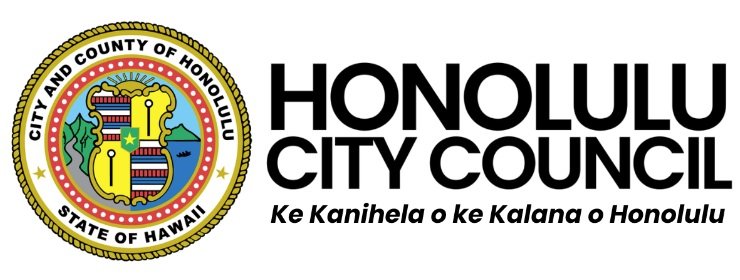Honolulu Council Emergency Preparedness Legislative Package Announced in Wake of Devastating Wildfires
HONOLULU, HI – Councilmember Matt Weyer, Chair of the Honolulu City Council Committee on Housing, Sustainability, and Health, announced today the introduction of an Emergency Preparedness Legislative Package. The package includes three separate measures:
Resolution 23-239: Initiating Amendments To The Revised Charter Of The City And County Of Honolulu 1973 (Amended 2017 Edition), As Amended, Relating To The Qualifications Of The Director Of Emergency Management, co-introduced with Council Chair Tommy Waters
Resolution 23-240: Requesting The City Administration To Present To The City Council Budget Recommendations That Address Long-Term Emergency Preparedness No Later Than 150 Days Prior To The End Of Each Fiscal Year, co-introduced with Budget Chair Radiant Cordero
Resolution 23-241: Urging The City Administration To Establish A Working Group To Provide Recommendations On Long-Term Emergency Preparedness For Residential Housing, co-introduced with Public Safety Chair Val Aquino Okimoto
Councilmember Matt Weyer stated, "The recent events on Maui and the wildfires in our own neighborhoods have underscored the urgent need for comprehensive emergency preparedness. This package is not just about responding to disasters; it's about anticipating them and ensuring our community's safety and resilience. We owe it to our communities throughout the City and County of Honolulu to be proactive and prepared."
The package includes:
Establishing Qualifications for the Director of Emergency Management - Resolution 23-239:
A proposed amendment to the Revised Charter of Honolulu 1973 seeks to specify the qualifications required for the position of Director of Emergency Management. Should this Charter Amendment pass, the Director of Emergency Management would be required to have a bachelor's degree in a relevant field, a minimum of five years of experience in emergency management, and demonstrated capability to collaborate with various agencies during emergencies.
“We already have requirements for numerous directors in the City, including the Director of Emergency Services,” said Councilmember Weyer. “Setting baseline qualifications for the Director of Emergency Management seems like an obvious step in ensuring that our emergency preparedness efforts are being led by someone with the experience needed to meet our community’s needs.”
Annual Budgetary Recommendations on Emergency Preparedness - Resolution 23-240:
Recognizing the escalating threat of wildfires and other disasters, Resolution 23-240 urges the City Administration to present annual budgetary recommendations for long-term emergency preparedness. This includes prioritizing funding, collaborating with various agencies, and regularly updating emergency preparedness plans.
“As we strive to meet the immediate needs of Oʻahu residents, we must also engage in long-term emergency preparedness to keep our families safe. This resolution allows both the City Administration and the Council to evaluate and prioritize funding in ways to best confront the challenges ahead,” said Weyer.
“The City’s priorities are reflected in our budget, and through Resolution-240 we hope to show that the City and County of Honolulu is prioritizing emergency preparedness across our island. These efforts will allow the Council to identify areas of preparedness that lack funding and address them during our annual review of the City budget,” said Cordero.
Working Group for Residential Housing Preparedness - Resolution 23-241:
This resolution urges the City Administration on the establishment of a working group to provide recommendations on long-term emergency preparedness in the context of residential housing. This group will comprise representatives from relevant City entities, building and trades experts, architects, and engineers. They will consider potential amendments to building, zoning, and housing codes, ensuring residential structures' resilience.
“We must ensure that our residents are equipped with the tools that they need to keep their families safe when and if disaster strikes. Bringing our local experts together will ensure that our preparedness policy is informed by the most up-to-date information and the reality on the ground.”
Councilmember Okimoto commented, “One of the most important things local government can do is to be proactive by reviewing and considering improvements to protect infrastructure and our homes. Significant changes were made to county building codes in the wake of Hurricane Iniki. In 2019, the estimated cost of a category 3 hurricane would exceed $26 billion. This is a risk we cannot afford to take. It is my belief that this working group envisioned in Resolution-241 can make meaningful recommendations focused on retrofitting homes while keeping improvements affordable to the consumer.”
The Honolulu City Council remains committed to ensuring the safety and well-being of its residents. These measures reflect the council's dedication to proactive planning and collaboration across various sectors to address the challenges of the future.
For more information, please contact: Ryan Kobayashi, Senior Advisor/Chief of Staff, Office of Councilmember Matt Weyer, 808-768-5037, rkobayashi3@honolulu.gov
# # #
